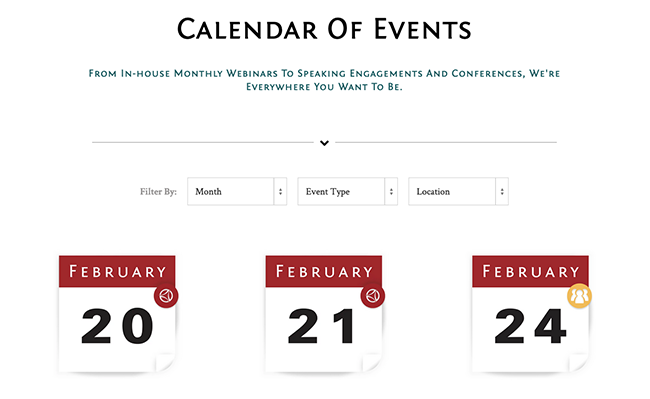“The true value of an organization is measured by the desire others have to contribute to that organization’s ability to keep succeeding, not just during the time they are there, but well beyond their own tenure.” - Simon Sinek, The Infinite Game
 In 2009’s Start With Why, author Simon Sinek makes the point that all organizations and individuals have a “Why.” It’s our origin story, the reason we do what we do.
In 2009’s Start With Why, author Simon Sinek makes the point that all organizations and individuals have a “Why.” It’s our origin story, the reason we do what we do.
Why is our purpose, cause, or belief. Our purpose comes from our past. It’s born out of how we were raised and the values we were exposed to.
And, according to Sinek, it’s far more important than how you do it or what you deliver. As he often says, “People don't buy what you do; they buy why you do it. And what you do simply proves what you believe.”
At Gibson, we’ve existed to protect what matters most. We’ve gotten better at it over the years, using more sophisticated means to help our clients understand what matters most to them and their businesses.
We’ve hired safety engineers to proactively teach their leaders and people how to prevent workplace accidents. We’ve added wellbeing experts to shape and support a healthy engagement with their workforce.
Through it all, we’ve also learned we can’t protect what matters most to our clients, unless we protect what matters most to Gibson: our people.
That means we must know what our people want, where they’re going, and why it matters to them. We fill a key role as their expert guide, helping them navigate to their ideal future. And we are there for them, providing safety through benefits like unlimited time off and employee ownership.
In The Infinite Game, Sinek argues for the future. In a Q&A with the author, Inc. Editor-at-large Leigh Buchanan captures Sinek’s feelings about the choices made by infinite-minded leaders:
“Running a business is a journey without a final destination. The goal is not to win but to keep playing, by which he means building an organization that can survive its leaders. That requires making decisions that sometimes impede conventional entrepreneurial imperatives, such as grow at any cost.”
Playing an infinite game requires an infinite mindset. When your goal is to keep playing (versus “winning” the quarter or year), you think and act differently. Infinite games are about constantly learning, growing, and getting better, not about being the best.
For an infinite game, beyond Why, Sinek says leaders need to clearly articulate their organization’s Just Cause. It’s an extension of our Why, projected into the future. It’s a vision of what things could be like, an ideal state where our Why has been achieved. He acknowledges it’s possible, perhaps even likely, we’ll never actually get there. But it’s so compelling that we are willing to sacrifice it all in trying.
For Sinek, a Just Cause must be:
- for something – you’re fighting for vs. fighting against
- inclusive – it uses the collective strength of your organization
- service oriented – it’s in the service of others
- resilient – durable, standing test of time
- idealistic – it’s the vision of an ideal future state in a changing world
There are still many finite games being played inside the infinite one. Quarterly rocks, annual goals, 10-year targets, and Gibson’s “100 Milestones” are all just points on the never-ending journey. According to Sinek, even President Kennedy’s BHAG of putting a man on the moon, although big and inspiring, had a finite objective.
This all has me thinking about Gibson’s Just Cause. How do our Why and Milestones hold up when filtered through the criteria above? What does an ideal state look like where all that matters most is safe and secure? Are we doing the right things to advance it? Or do we even need one?
How about your organization? Would your “vision statement” stand up to a Just Cause critique?
Writes Sinek , “It is the Just Cause that we are working to advance that gives our work and our lives meaning. A Just Cause inspires us to stay focused beyond the finite rewards and individual wins. The Just Cause provides the context for all the finite games we must play along the way. A Just Cause is what inspires us to want to keep playing.”
For now, I will keep pondering those five criteria, believing and knowing that Gibson playing an infinite game positions us to be the ever-improving, optimal version of ourselves - for our team and our clients.
What’s The Risk?
In his conversation with Leigh Buchanan, Sinek answers the question of finite vs. infinite:
It's not a question of right or wrong. It's about what kind of company we want to build. We do not get to choose the rules of the game of business. The only choice we get is how we want to play. The choice to play with a finite mindset comes with a cost. The cost of trust. The cost of cooperation. The cost of innovation. The cost of longevity. The choice to play with an infinite mindset may mean the growth numbers are a little slower than your friend's down the street. But the goal is not to beat your competition. The goal is to outlast them.
Thank you, Simon Sinek, for putting words to this. From 1933 on, we’ve taken the long view at Gibson. Although my predecessors Dave Gibson and Greg Downes may not have articulated it in the same fashion, the infinite game is the game we’ve always been playing.
And to my fellow Gibson employee owners in the infinite game: play on, players!




